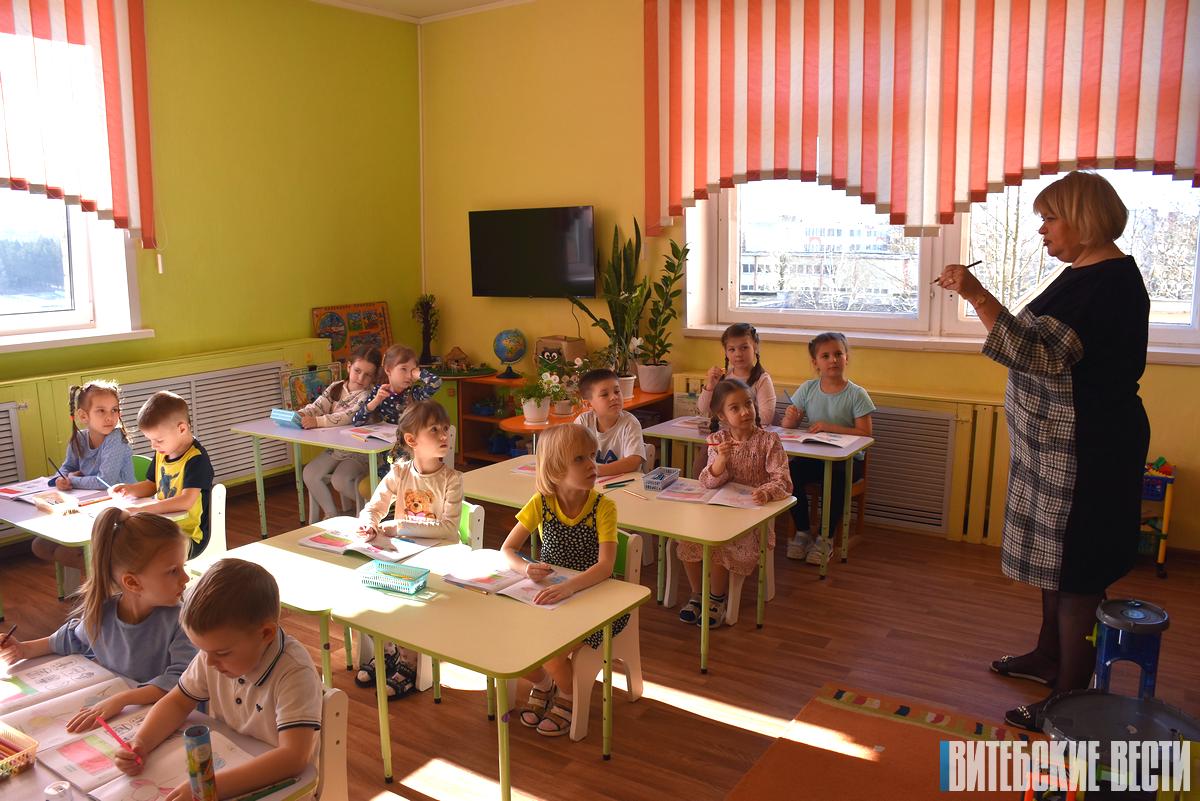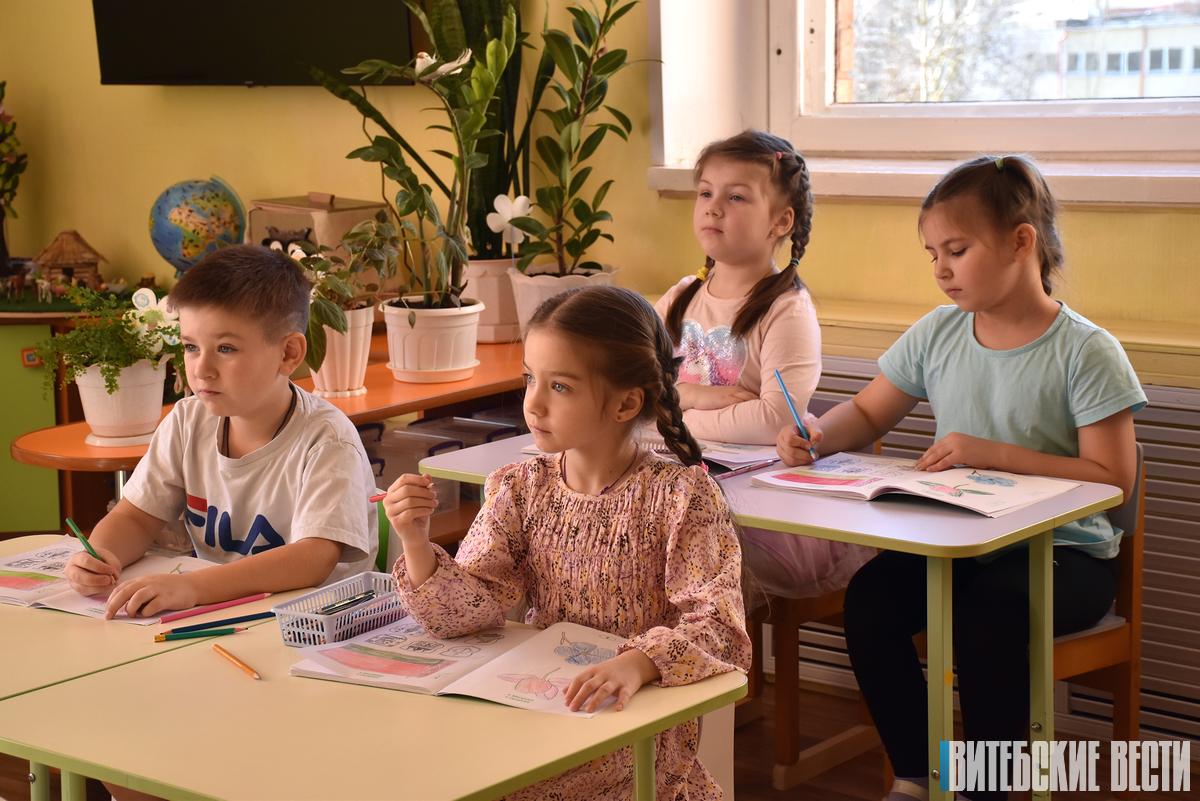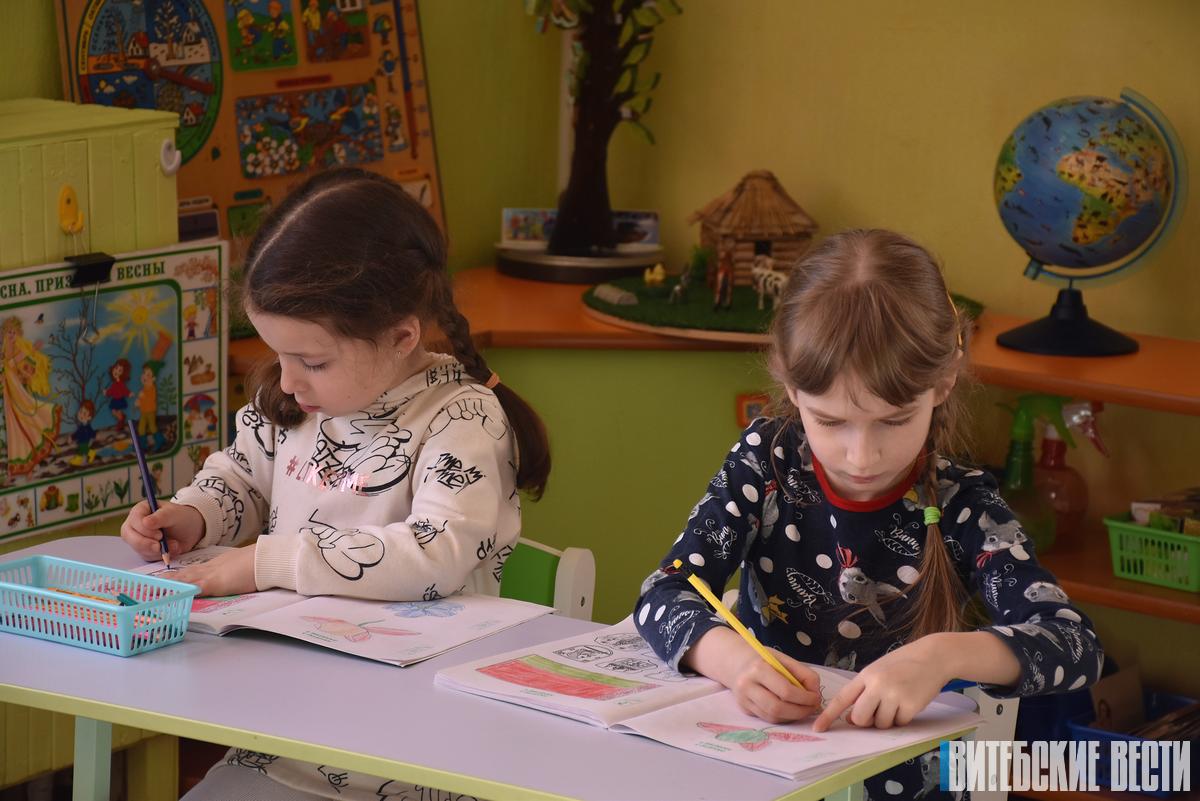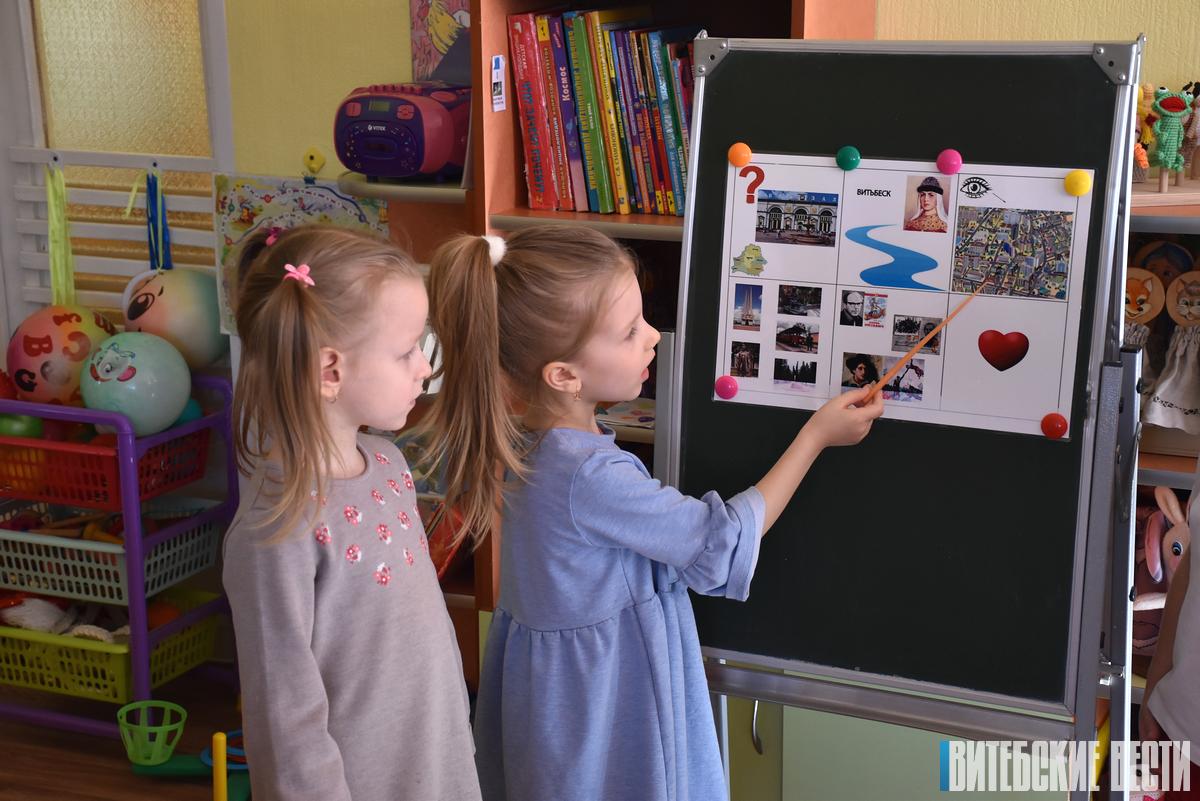How to determine if a child is ready for first grade? Learned from the experts
How do you know if your child is ready to go to first grade? What, according to the educational standard of preschool education, do kindergarten graduates need to know? Why does the ability to read and count do not guarantee success in the classroom for six-year-olds? Practitioners from the Vitebsk Preschool Child Development Center No. 5 told the VV correspondent about all this.
Reference point - to the standard

Entering school is the beginning of an important stage in the life of every child, emphasized the head of Children's Children's Center No. 5 Lyudmila Logunova. Children enter a world of knowledge, new rules and responsibilities, and different relationships with adults and peers. And in order for a first-grader to attend lessons with pleasure and successfully master the curriculum, he must be properly prepared for this. After all, a lot will change. Play activities, which are the main ones in a preschool education institution, will be replaced by educational activities. The duration and number of classes will increase.
– What is meant today by a child’s readiness for school? The guideline is the officially approved educational standard of preschool education. It determines the formed competencies of students necessary for their further development,” explained Lyudmila Logunova. – This regulatory document establishes the main directions of development: physical, social-moral and personal, cognitive, speech, aesthetic. They, on the one hand, act as the foundation for the continuity of preschool and primary school education, and on the other hand, they demonstrate the child’s achievement of an established educational goal.
What do you need to know and be able to do?
In accordance with the educational standard, by the age of six, children, for example, need to be able to perform various types of basic movements (walking, running, jumping, climbing, throwing), elements of sports games (basketball, football, etc.), and complete the started motor skills. activities, to realize their physical skills in interesting and useful activities (such as hiking and walking, swimming, riding a scooter, cycling, etc.).
The standard also stipulates that a six-year-old child knows his home address, his own first name, patronymic, last name and that of adults, verbally expresses his emotional states (for example, “I’m glad,” “I’m angry”), evaluates them from the standpoint of moral standards (good/bad ). He independently performs hygiene procedures, uses cutlery correctly, observes table manners, daily routine, and follows the rules of safe behavior at home and on the street. Determines the geographical location of his country on the map, names which states it borders on; knows the capital and native town, their attractions. Tells about the meaning of the colors and ornaments of the State Flag, about the elements of the State Emblem of the Republic of Belarus, about monuments and memorials on the territory of our country dedicated to the events of the Great Patriotic War.
Psychologist recommends Children’s readiness for school is determined not by individual skills and knowledge, but by their set, which contains all the main components, as was explained to me at Children’s Center No. 5.

– Pupils should be assessed individually. For this purpose, diagnostics are always carried out in older groups,” noted Lyudmila Logunova. – Of course, every adult eventually wants to hear that their child is the smartest and most capable. But based on my parental and many years of teaching experience, I would advise moms and dads to pay very close attention to the objective assessment given by the educational psychologist and educator. Practice shows: not all parents realize how important physiological readiness and a certain degree of maturity of psychological processes are for a young student. Yes, a kindergarten student can read, even quite fluently, and count to one hundred, and cope well with assignments in developmental classes. But this, alas, does not guarantee successful adaptation to school life. So what else, besides counting, reading and writing, should mothers and fathers of six-year-olds pay attention to? Victoria Balyan, a teacher-psychologist at Children's Children's Center No. 5, spoke about this. “Reading and counting can be successfully taught by professionals in primary school if children have the required level of development of cognitive processes, memory, attention, thinking, and imagination,” she is sure.

“Unfortunately, sometimes in the older group you can see the following picture: the mother sits the child on her lap and pulls tights on him,” Victoria Balyan specified. – What’s in the future? At school everyone will get dressed, but this first-grader will be left behind and won’t know where his sports uniform or shift is. You should pay attention to the ability of children to sit still and engage in one activity for at least 10 minutes. If a child gets down to business, immediately drops it and grabs onto something else, this is an indicator that he is not able to concentrate attention on the object for a long time. It will be difficult for such a first grader to even just sit at his desk. What kind of assimilation of program material can we talk about? “It is important to be able to control your emotions, recognize them in yourself and others, peacefully resolve conflicts, and seek compromises,” continued Victoria Balyan. – This is necessary to establish contact with peers and the teacher. Communication activity must be formed. A student should be able to contact an adult, come up and express his need in words. Parents often confuse the child’s training to perform certain actions and his development, the educational psychologist shared her observations. As a result, those who read fluently are sometimes unable to retell what they read. But mastering coherent speech is much more important than the ability to read. – The situation is aggravated by the passion for gadgets. As a result, children’s passive vocabulary accumulates, but not everyone can construct a story using not only nouns and verbs, but also secondary members of a sentence, explained Victoria Balyan. By the way, parents not only need to decide whether the child will go to first grade at age six or remain in a preschool education institution. They are entrusted with another serious mission: to form a positive attitude towards school in their son or daughter. If adults make statements to their child: “When you go to school, they will teach you discipline,” or dad remembers: “How dear this education was to me!”, then, naturally, the child will only have negative emotions.

“Parents need to very carefully convey ideas about the new stage of life to the future first-grader,” noted the educational psychologist. – It is important to form a positive image of the school as a source of knowledge, an opportunity to find new friends, bright impressions, and discoveries. “When the necessary foundation is formed, when the child loves, knows how and wants to comprehend new things, is ready for this, then he happily goes to first grade and then studies successfully,” summed up the head of Children’s Center No. 5.








